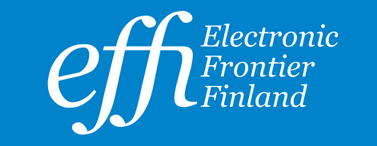Helsinki 22.12.2004
Open letter
Preface: This is an open letter from Mikko Rauhala of the Department
of Computer Science of the University of Helsinki to Under-Secretary
Wlodzimierz Marcinski of Poland. Reproduction and publication are
permitted and encouraged as long as the text is unmodified. The
author would be glad to be notified of such publications via
E-mail to mjrauhal@cs.helsinki.fi, but this is not required.
Dear Undersecretary Wlodzimierz Marcinski,
I was positively elated to hear about you standing up to the pressures
of certain other parties in the EU Council of Ministers and getting
the Software Patent Directive in its current form off of the Agenda
of the Council of Agriculture and Fisheries. The citizens of EU owe you
a debt of gratitude for this upstanding act of defending democracy,
innovation and competition within the Union.
I am sure you are more informed than myself about the backhanded
dealings within the Council to completely disregard the Parliament’s
view on software idea patents in their so-called compromise text.
You can also probably well imagine the dealings that have led to
some parties’ insistence on wider patentability. Nevertheless, in the
hope that it might prove somehow useful, I would like to offer my
admittedly limited insight on how things seem to have progressed here
in Finland, if even just to affirm what you might already reasonably
suspect.
In the autumn of 2003 there was a hearing on the Parliament’s
version of the directive text here in Helsinki. Among others, the
Department of Computer Science of the University of Helsinki was
invited. I had already been working there for a couple of years, and
the department head appointed me as our official representative at the
hearing. Also, as it happens, Electronic Frontier Finland¹, which concentrates on defending civil and consumer
rights in the digital age, did not receive a timely invitation to the
hearing. Luckily, I happened to be on the board of EFFI at the time,
and was recognized as representing them also.
With the notable exception of Finland’s Parliament member Jyrki Kasvi,
who had come to the hearing uninvited, there were no other opponents
of software idea patents present, and neither were there any other
representatives of the scientific community. In fact, mostly the
participants seemed to be composed of three interest groups: big
business (as represented by Nokia), lawyers and the National Board of
Patents and Registration of Finland. In other words, these were people
who were standing to gain personally from wide patentability of
software ideas: Nokia could better strong-arm smaller competitors into
submission, patent lawyers would become indispensable for everyone
wishing to write and market software, and the patent office wouldn’t
have to worry about losing work or funding any time soon.
Even though software idea patent proponents tend to talk about such
high ideals as promoting the progress of science and useful arts, it
comes as no big surprise that the actual opinion of the part of the
scientific community I was representing didn’t carry much weight in
the proceedings, and that the civil rights issues²
were likewise dismissed altogether. It was also widely argued that the
EU Parliament’s directive text was too unclear on what was patentable.
Curiously, the correct remedy seemed always to be to clearly allow
wide patentability of software ideas. On the whole, I would summarize
the hearing as the aforementioned parties asking for our government to
please make others give them more money (albeit not in such a
straightforward manner). The government apparently thought this to be
a reasonable suggestion.
Thus it came to pass that Finland supported walking over the EU
Parliament and sacrificing the interests of both private individuals
and small and medium-sized enterprises in favor of lawyers and
aspiring monopolists. Sadly, not many have had the courage to oppose
this practice of perverting supposedly democratic processes into
something better described as plutocracy.
I know that this particular fight is not over yet, and that there are
many other issues where the interests of the rich and the powerful are
likely to take precedence also in the minds of many a politician.
However, Poland’s example gives me some hope in a democratic Europe
once more. Hopefully it will also inspire others, especially the EU
newcomers, to take a similar stand as equal members of the Union
and not be intimidated into compliance by entrenched political powers.
Yours Truly,
Mikko Rauhala
¹ See http://www.effi.org/index.en.html. EFFI
is also a founding member of European Digital Rights (EDRi), see
http://www.edri.org/
² I do consider it a civil rights issue when the rights of
individuals to write original software and earn a living off of
their work is threatened by monopolizing programming practices.
Strangely enough, some do not.
EFFI press releases (in Finnish):
- EFFI: Ohjelmistopatentit eivät kuulu maatalousministereille,
20.12.2004,http://www.effi.org/julkaisut/tiedotteet/lehdistotiedote-2004-12-20.html - EFFI: Ohjelmistopatenttiäänestys lykkäytyi Puolan pyynnöstä,
22.12.2004,http://www.effi.org/julkaisut/tiedotteet/lehdistotiedote-2004-12-22.html
